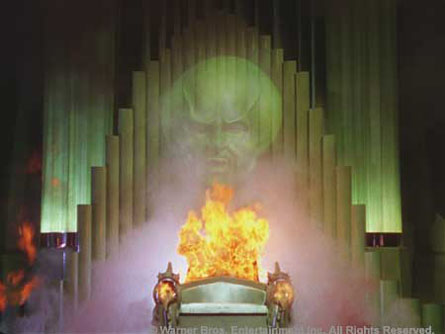Immediately after finishing “The Nose,” I felt the same feeling in my gut as I did after completing “The Metamorphosis.” I lay back in my bed and thought to myself, what did I just read…? Why are our teachers making us read this? First a man turns into a bug and dies, and now a man loses his nose to then get his nose back.

However, even though some parts left me frustrated, I actually enjoyed the piece and found the story to be interesting and amusing rather than simply depressing. Although, my responses to the ending were pretty similar: why create such a convoluted story to say such a simple thing?
From the beginning of the story, I enjoyed the interesting assortment of jumbled sentences that seemed as if they were translated by a young Russian child who had just taken up Rosetta Stone. It seems like I’m being sarcastic, but I’m being serious. I actually thought it made the story more interesting and open to interpretation. There was almost a deeper connection to the world where the short story was written. I think it added to the effect the story had. I really felt as if I had dove headfirst into the streets of 19th century Russia and visualized a lot of the story much more vividly.
I imagined Kovalev to be a short man with a very expensive black trench coat. If I could choose any word to describe the character, I would use creep. He was a guy who seemed to prioritize his status over everything, but in reality he was a short bald man with few real friends. The background of the story led me to this conclusion. He loved the title major, and when he would talk to the ladies he introduced himself as the major. It was all about making himself seem bigger than he actually was.

For these reason I switched between visualizing him as the creep in a trench coat and as Oz from the wizard of Oz. Different parts of the story highlighted aspects of Kovalev that related to the two characters. When he would hold a napkin up to his face to hide his grotesque lack of a nose, I couldn’t help but feel a creepy vibe. When he would boast the major title, I couldn’t help but see Oz behind his curtain proclaiming how grand he was. ‘The great and powerful Kovalev’ kept echoing in the back of my mind. The scene that really stuck in my mind was when Kovalev was searching for his nose and it is finally in front of him at the bar. I thought that it was so funny that he loses the nose when he turns his head to check out some ladies, only to realize that he isn’t looking so good today. He loses both the nose and the girls and this really highlights his priorities.

I really can’t help but feel as if the ending to the story was useless. I understood by halfway into the story that social status was everything in 19th century Russia. Why just give him his nose back. Why not punish him or further your story in a way that actually adds to your point? The ending seems too easy, like adding, ‘and then he woke up from his dream’ to conclude your story that lacked an ending. Maybe I’m being overly critical. Or maybe the story is actually stupid. Either way, I enjoyed the content of the story far more than “The Metamorphosis,” I just feel as if the writer’s indirect methods of proving a point serve purely to piss off the reader.
Austin
Works Cited:


Great mood diary! I have to agree with your assertion that my gut had a similar reaction to this short story as it did with the Metamorphosis. My overall discomfort throughout the short story furthermore did not aid me in understanding the piece. The utter ridiculousness of the story also made me ponder why we were assigned this reading, but then I recalled that teachers always have a motive behind assigning anything. In contrast, I had a gut feeling that Major Kovaloff would wake up with nose reattached. Personally, when I read something ridiculous, I often make the assumption that the main character will eventually wake up from a dream or something of the sort and be returned to normal.